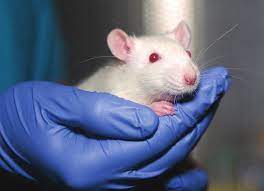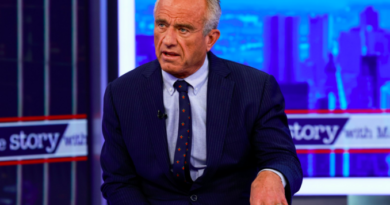Mast conspiracies: after 5G’s bad reception, can marketing help it connect?

Back in April, protestors (who had organized over mobile networks) went about torching phone masts in Belfast, Birmingham and Merseyside, hindering telecoms infrastructure at the peak of Covid-19. Industry body Mobile UK said that around 77 towers were attacked that month – and that, despite the intentions of the conspiracy theorists, most of these were not 5G-enabled.
There were also more than 40 instances of physical or verbal attacks on engineers, with O2 equipping its staff with signs reading ‘O2 Engineer Key Worker: Keeping your network running’ to dissuade would-be attackers.
Anti-5G groups on Facebook and WhatsApp were the breeding ground for these ideas, striking at the intersection of anti-vax, wellness, pseudoscience and conspiracy groups, while uncritical press coverage legitimised the theories.
But rather than wasting column space repeating debunked conspiracies (you can read up on fact-checking charity Full Fact’s briefing here), we wanted to find out whether 5G – the supposed tech of the future – even has a future.
Spread of 5G
A YouGov survey from October 2019 found that while 89% of Brits had heard of it, only 2% had a 5G contract and only 27% intended to get one. Fast forward to June 2020 and that number remained at 27%.
Despite 5G-enabled phones being available for more than a year, uptake is slow. And between the conspiracies and Huawei infrastructure noise, that is unlikely to change soon. Communications consultant and tech journalist Will Guyatt says, half-seriously, that we might be best better skipping 5G completely and moving to 6G.
“It is now polluted. My 71-year-old mom uses a Motorola mobile and she says she doesn’t ever want 5G.”
The product is “inherently damaged“, he says, and the mobile companies have ”failed to clear it up”. And beyond the culling of a few groups, social media companies (who would benefit greatly from the 5G network) have failed too.
“From 4G to 5G, we‘ve gone from a faster device to one that can ‘control your mind can sterilise your children’. Maybe we‘re entering a period where some people think new tech is good and others think it is evil.”
5G faces a comms battle, and only one side has turned up. But can the industry engage with conspiracy theorists without legitimising the theories or garnering a ’they would say that’ response?
“I don’t know how you win this one,“ says Guyatt. “These people are now in the vacuum. The companies refuse to offer a clear line or say these people are lunatics. They’ve all fallen asleep. They waited too long. We were talking about the dangers of 5G before you could even buy 5G.”
BMB chief exec Jason Cobbold – who worked on the launch of 3G with Three Mobile and has previously written on 5G’s image problem – digs further into the problem, comparing it to the public’s understanding of coding. How many of us who use the web understand its complex coding building blocks.
Science fiction writer Arthur C Clarke said there were three laws to adhere to in his favoured genre, the third of which is that ”any sufficiently advanced technology is indistinguishable from magic”. Are the witchcraft-style conspiracies and accusations a byproduct that the tech is so complex, few can explain it?
Cobbold says: ”When you get this enormous gap between popular comprehension of just what the thing is and what the thing can actually do, all sorts of issues crop up.”
3G was portable broadband, 4G was faster and 5G, Cobbold says, is an “exponential leap that is harder to articulate, with more of an architectural and structural benefit. 80% of the things it will do haven’t even been invented yet”.
In that void of confusion, “ridiculous concerns” live.
And, he adds, there hasn’t seen enough unity from the telcos.
“Each of the big networks has a different version of 5G. In the US, they’ve had a massive shouting match about whose version was most effective. 5G has been muddied by companies warring for a competitive advantage.”
Could an ad campaign tackle the scaremongering, much like the auto industry is doing to address misinformation and doubts about the effectiveness of electric and hybrid cars?
“With 5G, the long-term economic impact is huge, so someone’s going to have to make the case for this future”, says Cobbold. But that’s unlikely to happen right now. “If you’re a network, I would contend maybe that things like human relevance and reliability and strong connectivity are the foundations of great mobile phone comms. They are more important than future-gazing.”
But, he concludes, just as Orange once posited that ‘The Future’s Bright’, 5G might need such a landmark campaign.
What can 5G do?
Speaking to The Drum, Nina Bibby, chief marketing officer of O2 UK carries high hopes for 5G, citing a recent McKinsey report that thinks it “could boost global GDP by up to $2tn by 2030”.
She believes that “most people recognise the fake news conspiracy theories around 5G”. The theories are “baseless and are not grounded in credible scientific theory”.
“It has been frustrating that such critical infrastructure has been damaged at a time when the country needs it most, impacting everyone – consumers, businesses, the NHS and the emergency services.”
She urged that the company will do more to “tackle the issue and help keep consumers informed”, including working with industry body Mobile UK.
She says it will deliver fast, reliable connectivity. Movies will download in the space of seconds. “We’ll not only be able to deliver better experiences for sport and music fans, but also tourism where AR and VR could be used to give much richer visitor experiences. Multiplayer gaming on the go could also benefit.”
She doesn’t believe that the misinformation has hurt demand and O2 UK is “ahead” of its 5G development targets.
Iris Meijer, the chief marketing officer of Vodafone Business, is working instead to sell the tech’s benefits to B2B clients, with the help from research outfit Context Consulting. “It’s been hard to help businesses imagine the possibilities that the technology enables,” she admits. Storytelling and showcasing the tech is vital.
With the consultancy, Meijer looks to establish the baseline 5G knowledge of the boardrooms she’s pitching to. “There was limited awareness of the range of benefits of 5G beyond faster data rates and better coverage.”
Many businesses surveyed were unawre that 5G enables firms to connect more devices, at a higher density of devices, with longer battery life and faster response times. And the point is, if we still envision an internet of things future, we are going to need 5G.
The real-world benefits are still being discovered, says Meijer. Or, perhaps more accurately, they are still being invented. “From rethinking car factories in the UK to trialling connected ambulances in Italy to fully autonomous passenger ferries in Germany…” Meanwhile, O2’s working with Northumbrian Water Group to develop operational efficiencies, AR mapping, and remote expert learning, as well as working with Glasgow University to develop a fully-connected Covid-19 testing clinic-on-wheels.
But is the consumer backlash threatening this future? Meijer doesn’t think so. “I don’t think it has put many organisations off the technology. We are always open to talking with them about the implications any decisions or new regulations may have. I also think the overwhelming majority of business leaders recognise the fact that 5G conspiracy theories are baseless.
”There are many positive stories and use cases for 5G. The wider 5G community – and I include us here – needs to continue to tell these interesting and inspiring stories to engage prospects.”
*** This article has been archived for your research. The original version from The Drum can be found here ***


